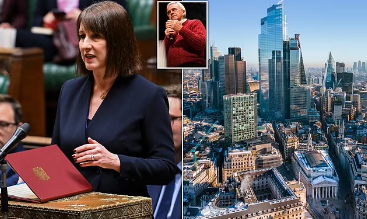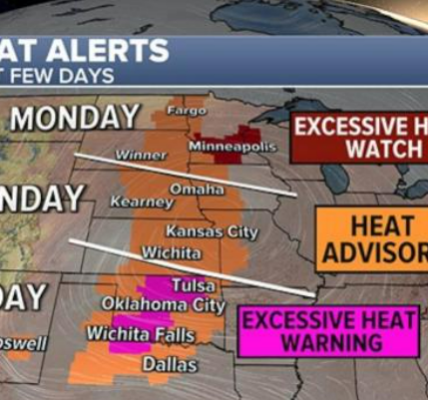Rachel Reeves is warned that opening the door to spending cuts after market chaos would be ‘politically suicidal’ – as beleaguered Chancellor faces growing pressure to resign_Nhy
Rachel Reeves yesterday signalled she may need an emergency Budget as soon as March as soaring Government borrowing costs threatened to derail Labour’s spending plans.
The embattled Chancellor hinted that billions of pounds in emergency spending cuts could be needed within weeks after sceptical financial markets pushed up long-term borrowing costs to the highest rate for 27 years.
In a statement to MPs, Ms Reeves defended her decision to continue with a controversial trip to China at the weekend while markets were turning against the government.
But shadow chancellor Mel Stride said the rise in borrowing costs in the wake of her ‘disastrous’ Budget had blown a £12 billion hole in the public finances – half the amount raised by her raid on employers’ National Insurance and 100 times the £120 million a year in new investment she claims to have secured in China.
‘We have seen it all before,’ he told MPs. ‘Socialist governments who think that they can tax and spend their way to prosperity; Labour governments who simply do not understand that if you tax the living daylights out of business, you will get stagnation.
‘They do not understand because there is barely a shred of business experience on the government front bench.’
Ms Reeves said she hoped to stick to her pledge to hold just one Budget per year. But she failed to rule out an emergency Budget in March, when the Office for Budget Responsibility (OBR) publishes a new forecast, which is expected to show she is on course to break her own ‘fiscal rules’.
She said she was ‘absolutely committed’ to the rules – which are designed to get borrowing under control – and would meet them ‘at all times’.
A Government source said this could involve taking ‘corrective action’ in March, such as emergency spending or welfare cuts, potentially running into billions of pounds.

The Chancellor hinted that billions of pounds in emergency spending cuts could be needed within weeks after sceptical financial markets pushed up long-term borrowing costs to the highest rate for 27 years

Labour’s former shadow chancellor John McDonnell told the BBC that a round of spending cuts would be ‘politically suicidal’
Asked whether she was planning a fresh round of spending cuts, she told MPs she was ‘absolutely committed to meeting the fiscal rules’.
Ms Reeves said she was ‘under no illusion about the scale of challenges that we face’.
But she said ‘movements in international markets in the past week’ were ‘global in nature’. She added: ‘In the UK, we must do what we can,’
Ms Reeves, who will travel to Davos next week for the World Economic Forum, said she would leave ‘no stone unturned’ in her bid to revive Britain’s economic growth, which has shrunk to zero since the Budget.
‘The economic headwinds we face are a reminder that we should-indeed, we must-go further and faster in our plan to kick-start economic growth,’ she said.
But Mr Stride accused her of subjecting the country to the ‘unedifying sight of an increasingly desperate politician scampering halfway around the world with a begging bowl’.
He suggested Sir Keir Starmer should remove her, saying: ‘To go, or not to go, that is now a question. The Prime Minister will be damned if he does, but he will surely be damned if he does not.’
The Chancellor told Tory MPs to ‘get real’.
But she also faced warnings from her own side about the impact of imposing spending cuts after pledging to reverse austerity.
Labour’s former shadow chancellor John McDonnell told the BBC that a round of spending cuts would be ‘politically suicidal’.

Yesterday, the pound saw a sixth day of falls against the dollar and hit a four-month low against the euro (pictured: City of London)
‘There is obviously a problem,’ he said. ‘There is turbulence in the international markets and we just have to see this through.
‘You don’t turn to cuts, certainly. Not only would that be politically suicidal, it would undermine the political support on which Labour got elected.’
Yesterday the pound saw a sixth day of falls against the dollar and hit a four-month low against the euro.
And government borrowing costs ticked up, with yields on ten-year gilts – small parcels of debt issued by the Treasury – rising close to 4.9 per cent, not far off recent 17 year highs.
Yields on 30-year gilts came close to 5.5 per cent, nearing 27-year highs.
And in a gilt auction by the Treasury, when the government sells debt to investors, it was forced to pay the most to borrow since 2004.
It came as new figures from the Institute of Chartered Accountants in England and Wales (ICAEW) showed a ‘dramatic’ drop in business confidence to the lowest level in more than two years – as the economy stagnates and inflation remains too high.
ICAEW economics director Suren Thiru said: ‘The economy is in a challenging period with stagflation a live risk and there is little in our key forward-looking indicators of sales and investment activity to suggest that a meaningful improvement is likely anytime soon.’



